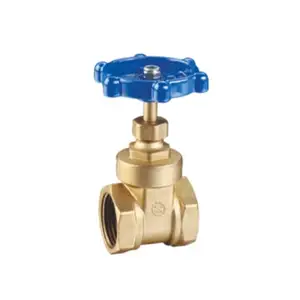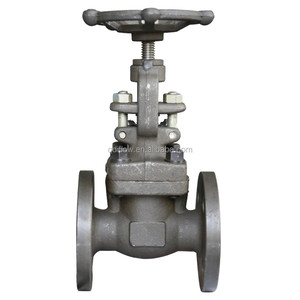Gate or sluice valves are critical in the plumbing and industrial sectors. The primary function involves the regulation of liquid flow through pipes. A typical gate valve consists of a body, a bonnet, a disc, a seat, a stem, a handwheel, and a packing. The disc and the seat play a crucial role in controlling the flow. The disc moves up and down along the stem, owned by the handwheel. When the disc lifts, it allows fluid to pass through. Conversely, when the disc lowers, it blocks the passage. Gate valves come in different types, including wedge and parallel gate valves. Wedge gate valves have a single disc, while similar ones have two. Made from various materials like bronze, stainless steel, cast iron, and plastic, gate valves can withstand high pressures and temperatures.
Different types of gate valves
Various gate valves exist, each with unique features and applications. The knife gate valve is known for its sharp edge that efficiently controls the flow of thick liquids such as slurry. On the other hand, the PVC gate valve is renowned for its corrosion resistance, making it suitable for applications involving water and other non-corrosive media. The slide gate valve also referred to as a slide valve, is utilized in industries where there is a need for minimal pressure loss and unobstructed flow. In contrast, the fire hydrant gate valve is specifically designed to control the water flow in fire hydrant systems. Additionally, expanding gate valves, suitable for gas and crude oil transportation, ensure a leak-proof seal by expanding the gate into the seat. Each gate valve type serves a unique purpose, providing optimal functionality in various industrial applications.
Applications of gate valves
The versatility of gate valves lies in their numerous applications across various industries. For instance, the brass gate valve is commonly used in domestic water supply lines due to its durability and resistance to corrosion. Industrial sectors, such as the petroleum industry, often employ gate valves to control the flow of crude oil, natural gas, and other petroleum products.
Additionally, water supply systems, power plants, and marine applications often rely on gate valves to regulate fluid movement. Because of their ability to cut off or allow flow ultimately, these valves are efficient shut-off mechanisms in emergencies. Construction projects also benefit from using gate valves, especially in managing waste water systems. The pharmaceutical industry uses gate valves to produce drugs, where precise liquid flow control is crucial. Lastly, the food and beverage industry finds gate valves indispensable for maintaining cleanliness and controlling the flow of ingredients. Despite the simplicity of their design, gate valves prove integral to a myriad of applications across various industries.












































 浙公网安备 33010002000092号
浙公网安备 33010002000092号 浙B2-20120091-4
浙B2-20120091-4